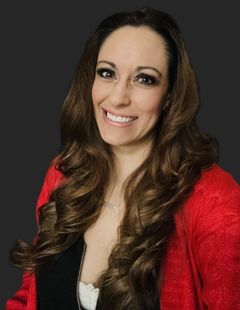As health and exercise professionals, we know credentials are not only important, but they are also necessary. Credentials help set us apart from the influencers and fitness stars who sometimes take creative liberties with the science of fitness, exercise and nutrition to sell a product or image. Another aspect of our professionalism that helps us stand out, grow and advance is professional networking. A professional network, when cultivated and continually nourished, gives experts a chance to learn from others in our field (and other professions) as well as benefit from informal mentoring. Take some time to evaluate who is in your “circle” and who you should consider connecting with.
Building a professional network can seem daunting at first, largely because there’s no exact “science” or formula you can follow to get it done. It’s important to recognize that building a professional network requires four important ingredients: time, intention, patience and meaningful action. Networking is a process of planting seeds, tending to connections and harvesting (and sharing) the benefits of your interactions. Take it one step at a time and consider exploring these seven effective ways to expand your reach and connect with other allied healthcare professionals.
- Focus on alignment. It’s no secret that there are personalities and philosophical underpinnings that simply don’t “mesh” or “click.” But instead of trying to connect with everyone, focus instead on finding and connecting with other professionals who have similar values but different experiences (and education). As an exercise professional, try not to limit your network to those same types of professionals. The point of a network is to learn and grow. Seek out other professionals who can help you accomplish those two goals as well as those with whom you feel you can share your experience and insight. A strong network should be reciprocal.
- Engage with others’ social media content. If you want a supportive network, you must commit to being a supportive professional and that includes engaging with the content your network members share and promote. Follow your contacts on their respective social media channels and go beyond a simple “like” by making a comment, resharing the post or tagging clients or other professionals who can benefit from that content. Promote often if the message aligns with your values and speaks to you.
- Build and share relevant content. Your followers, which include other allied health professionals, will continue to follow you and engage with your content if it is meaningful, relevant and consistent versus random and disconnected. Followers (and social media) love alliterations; try themes like “Movement Monday” that showcase a new and interesting exercise or “Try it Tuesday” where you offer a tip or “hack” you use that offers unique behavioral-change benefits. It’s also valuable to create a specific aesthetic or a consistent look and feel so followers instantly recognize your content.
- The Conference Rule. As professionals, we are accustomed to attending conferences, webinars and other learning experiences. I have one rule I commit to following: I send a personal email or note via a social media channel to presenters to thank them for their contribution to my knowledge and to the industry. It’s astonishing how many presenters and other professionals who I perceive to be “above me” and “royalty in the industry” take the time to write back and thank me for engaging with them and enjoying their presentation. Just in the last two months, I added two professionals to my network because I follow this rule.
- Communicate regularly and often. This tip goes beyond engaging with other professionals’ social media content; it’s about taking the time to personalize a message. Touch base with your contacts and ask how their work is progressing or follow up on talking points from your previous conversation or email exchange.
- Explore collaborative opportunities. Each allied healthcare professional has their own scope of practice. As certified personal trainers and health coaches, we cannot offer meal plans or a detailed nutritional analysis. However, a registered dietitian’s scope of practice is much more expansive when it comes to nutrition. Consider approaching a registered dietitian in your network about partnership opportunities that involve lunch-and-learns, workshops or other events for your clients (and theirs). Joining forces widens your reach and offers a unique experience for consumers.
- Celebrate accomplishments. You and your contacts will experience accomplishments and professional achievements. It might be that a colleague of yours published a position stand, gave their first live webinar or provided their expertise in other ways. Celebrate these milestones with them and share them within your network. Think of this as a virtual “brag board” or “winner wall.” And remember, promote your own achievements as well.
Networking is a necessary practice in any field, and it requires more than an invitation to “connect” or a handful of “likes” on a shared meme. Networking requires intention, thought and consistent deposits in the rapport bank account. Just as you would plan time to engage in continuing education and skill development, plan time for networking. Plant the seeds, nurture them consistently and share in their benefits.




 by
by 













 by
by